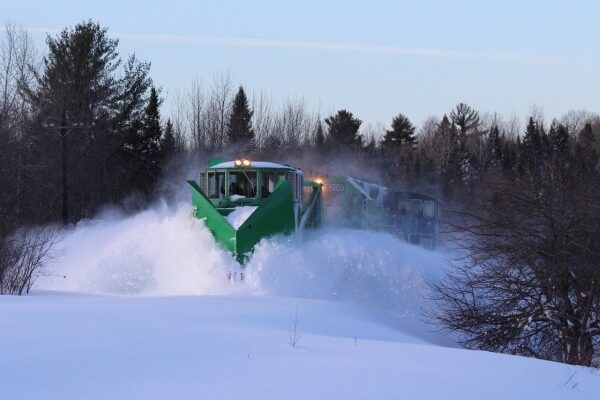
Railroad company ordered to pay Piscataquis towns for putting out fires near tracks
A Superior Court justice has ordered Eastern Maine Railway to pay more than $9,000 in restitution to five Piscataquis County towns whose firefighters responded to fires beside the railroad tracks in May.
A Maine Forest Service helicopter located four fires on the northside of Eastern Maine Railway’s tracks — three in Lakeview Plantation and one in Brownville — on May 13, according to information provided by the Piscataquis County district attorney’s office.
The railway was charged with failing to equip with or maintain the locomotive’s fire prevention devices, according to court documents obtained Wednesday.
Most small towns are on tight budgets so fires such as these can push their fire departments over their limits in equipment, fuel and labor costs.
On Monday, Superior Court Justice William Anderson ordered Eastern Maine Railway to pay a $150 fine and $9,435 in restitution to Bowerbank, Brownville, Dover-Foxcroft, Guilford and Milo for their labor and fuel while responding to the fires. The railway’s attorney, Nolan Reichl of Pierce Atwood LLP in Portland, was present.
The restitution ranges from $801, ordered to be paid to Bowerbank, to $3,878.25, ordered to be paid to Brownville.
The railway paid the $150 fine on Wednesday, a court clerk said.
Two fires were reported beside Eastern Maine Railway’s tracks in Lakeview Plantation on May 13, which the railway’s patrol located and determined to be about 10 minutes behind a westbound train, according to the district attorney’s office. The railroad stopped the train at Knights Landing in Brownville. Maine Forest Service rangers found four fires while surveying the situation from a helicopter.
Eastern Maine Railway was issued a summons for a violation of a section of Maine law related to preventing fires, which a railroad representative signed, according to the district attorney’s office.
A forest ranger suspects several issues with the railway’s locomotives sparked the fires. Eastern Maine Railway was operating a locomotive without an approved spark arrestor, which allowed it to emit carbon particles large enough to ignite wildland fuels and is a violation of Maine’s laws.
The railway was operating two other locomotives with exhaust systems that were not maintained.
Weather conditions on May 13 — including increased fire danger driven by the lack of rain, elevated temperatures and low relative humidity — also could have contributed to the fires.